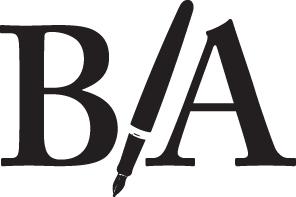Action, Not Reaction: Avoiding the Whirlwind
This week has a two-fold theme.
- Stay out of the whirlwind.
- Lead from the back
They connect.
It's impossible to lead well while reacting to the activity in the whirlwind.
That's why we living out of an email inbox is a bad idea.
And it's far to easy to think about productivity at the level of inbox management.
We can do better. Leadership begins with how we architect our lives.
This means there must be core habits we not only find the time to do, but prioritize.
Take the time for creative input.
For me that means reading. Not just reading tweets or short blog posts or random news articles (that's easy). I tend to make sure my reading is spread across these categories.
Long form Journalism.
This is a good antidote to the scanning and scrolling we tend practice in our online reading. I try to look for in depth, analytical journalism, like that found in The Atlantic and theNew York Times International. This is good practice for me to battle the tendency to skim and scrimp and not really think well about important issues.
Non-fiction. Development is an increasingly important factor for me. This means reading long-form non-fiction. Essentialism is possibly the most important thing I've read in the past several years. Currently working through of Ryan Holidays's Perennial Seller and re-reading Jessica Abel's Growing Gills.
Fiction. Because I'm in the process of writing a portal fantasy novel, it's also important to be reading from the same genre. Mistborn by Brandon Sanderson is meeting the need at the moment. I always try to keep fiction on my nightstand, at the very least. Story is more important that I think we even realize.
Think.
It's physics, really. A vacuum will get filled. Therefore, we must be intentional with blank spaces in our lives. This is true for everyone who leads - but I believe it especially true for those who desire to lead from the back.
Space to think is incredibly important, and that space will get chewed up and spit out by the whirlwind if we're not intentional about it. I block off calendar space and call it "analog time." That's my code word for "thinking time." My personal rule is no screens (nothing electronic) and often uncomplicated physical movement is involved. "Analog Time" (a.k.a. my thinking time) be an extended dog walk, or cleaning the kitchen - or even while drican ving long distances for business. The activity is unimportant. However, it's intentional.
If you don't schedule space to think, you will never have space to think. That's how the whirlwind operates.
Write.
I know. Writing isn't for everyone. Some of you actually "hate writing."
That's okay. Leaders should develop a writing practice, even if it stays in a locked diary and is burned with fire an hour later. A writing practice is important.
Julia Cameron's book "The Artist's Way" is a much heralded tome on creativity in the world of creatives. It's not for everyone. However, her practice of "daily pages" is something for everyone who leads - whether from a position or from the back.
Daily pages is simply this:
- Write every day
- Write three pages every day
- Write longhand with a pen and a notebook
- Write as fast as you can, without editing, erasing, crossing out, or otherwise amending.
I don't even read my pages until several weeks after writing. This seems like a pointless exercise. However, there is something to this which unblocks, informs, and sparks creative thinking.
For me, read, think, and write time is far too important to not be scheduled.
